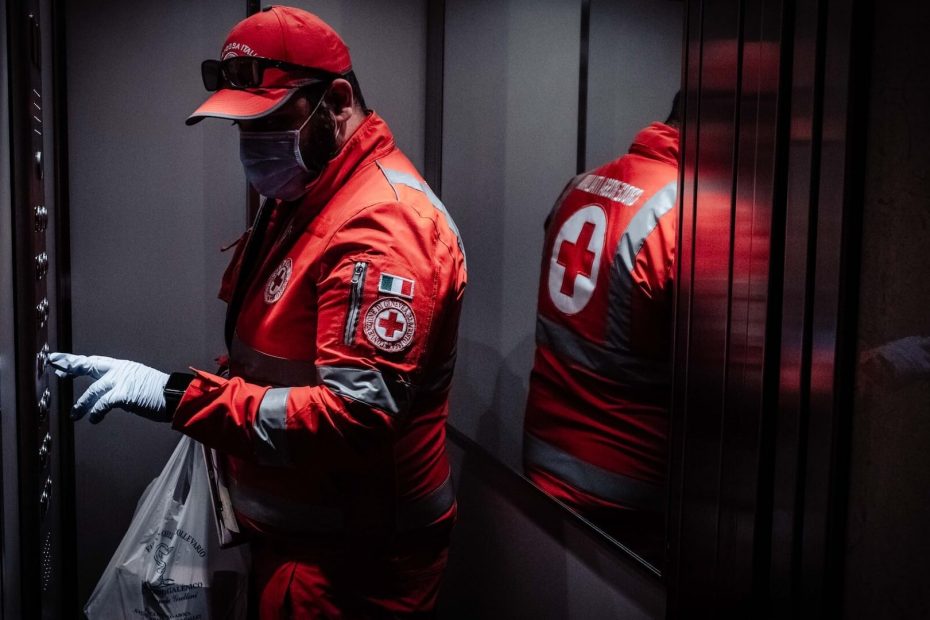In a world constantly grappling with a wide array of natural and man-made disasters, the need for dedicated and compassionate volunteers in international emergency response has never been more pronounced. These unsung heroes play a crucial role in responding to devastating earthquakes, and floods, navigating complex conflict zones, and addressing global health crises. In this comprehensive article, we’ll delve into the dynamic field of volunteering for international emergency response, highlighting some of the remarkable organizations that are making a difference.
The Power of Volunteering
Volunteering is a transformative force for good. It transcends borders, bringing people together from diverse backgrounds. Volunteers dedicate their time, skills, and, sometimes, their lives to help those in dire circumstances. The beauty of volunteering is not only in the immediate assistance it provides but also in the global community it forges. When individuals from different corners of the world unite for a common cause, remarkable things occur.
Understanding International Emergency Response
Before delving into the world of international emergency response, it’s essential to gain a comprehensive understanding of what this field encompasses. International emergency response is a multifaceted discipline encompassing disaster management, healthcare provision, education, and community development. “Volunteering” is the heartbeat of these operations, and it is the commitment of individuals that serves as the driving force behind their success.
The Call to Action
The call to volunteer for international emergency response is a summons that resounds within the hearts of many. It represents an innate desire to extend a helping hand during humanity’s darkest hours and a moral obligation to leave the world a better place. The capacity to respond to emergencies and disasters is not merely a privilege but also a profound responsibility.
Types of International Emergency Response Volunteering
International emergency response volunteering spans a diverse array of roles and specializations, each of which plays a pivotal role in comprehensive disaster management. Let’s delve into each of these areas with examples of remarkable organizations that operate within these domains:
- Medical Relief: Medical professionals, including doctors, nurses, paramedics, and specialists, are often in high demand during international emergencies. Remarkable organizations such as Médecins Sans Frontières (Doctors Without Borders) provide critical medical care to those affected by disasters and crises. Their tireless efforts save lives and offer hope where it’s needed most.
- Search and Rescue: These valiant volunteers often represent organizations like the Mountain Rescue England and Wales. They undergo rigorous training to locate and rescue people trapped in disaster-stricken areas, risking their lives to save others in treacherous terrain and adverse weather conditions.
- Disaster Relief Coordination: The organization and coordination of relief efforts are critical components of emergency response. Notable organizations such as the International Federation of Red Cross and Red Crescent Societies (IFRC) play a pivotal role in delivering essential supplies, setting up shelters, and managing logistics, ensuring that aid reaches those who need it most.
- Psychosocial Support: Trained volunteers from organizations like Save the Children provide crucial mental and emotional support to survivors of trauma. They help individuals and communities cope with the psychological impact of disasters, offering comfort and guidance during incredibly challenging times.
- Educational Initiatives: Remarkable organizations such as UNICEF play an integral role in rebuilding education systems in the aftermath of crises, ensuring that children are not deprived of their right to education, even in the most challenging circumstances.
Challenges and Rewards of Volunteering
While international emergency response volunteering is profoundly rewarding, it also comes with its share of challenges. Volunteers often confront arduous conditions, extreme stress, and the emotional toll of witnessing human suffering. However, the sense of purpose, the tangible impact made, and the deep connections formed with fellow volunteers and those they aid render these challenges worthwhile.
Training and Preparation
Proper training is the bedrock of effective international emergency response volunteering. It equips volunteers with the skills and knowledge required to operate effectively in crisis situations. Training programs offered by organizations such as the British Red Cross or VSO are tailored to the specific roles and responsibilities of the volunteers they aim to prepare.
Selecting the Right Volunteer Program
Selecting the right volunteer program is a pivotal decision on your journey to becoming an international emergency response volunteer. Numerous organizations and initiatives, such as Oxfam or Project HOPE, operate within this field, each with its unique focus and approach. It’s vital to conduct comprehensive research and select a program that aligns with your skills, interests, and values.
The Importance of Teamwork
International emergency response is a collaborative endeavour. Volunteers work closely with local communities, humanitarian agencies, and governmental bodies, such as local councils, to ensure an effective response and a robust path towards recovery. Teamwork is the keystone for the success of these missions, facilitating the pooling of resources, knowledge, and expertise to serve those affected by disasters more effectively.
The Impact of International Emergency Response Volunteers
The impact of international emergency response volunteers is profound and immeasurable. They are the unsung heroes who infuse hope into the bleakest of circumstances. Their work saves lives, rebuilds communities, and supports the healing process. Their dedication and unwavering commitment have a far-reaching influence that extends beyond borders, transcending language and cultural barriers.
Conclusion
Volunteering for international emergency response is not just a commitment; it’s a calling. It’s an opportunity to be part of something greater than oneself, to make a profound difference in the world, and to bear witness to the indomitable spirit of humanity during moments of crisis. The world is a better place because of these selfless individuals who stand ready to respond to emergencies, transcending borders to bring comfort, aid, and hope. By volunteering for international emergency response, you become a global angel, a beacon of light in the darkest hours of others’ lives. Your selflessness knows no bounds, and your compassion knows no borders.
